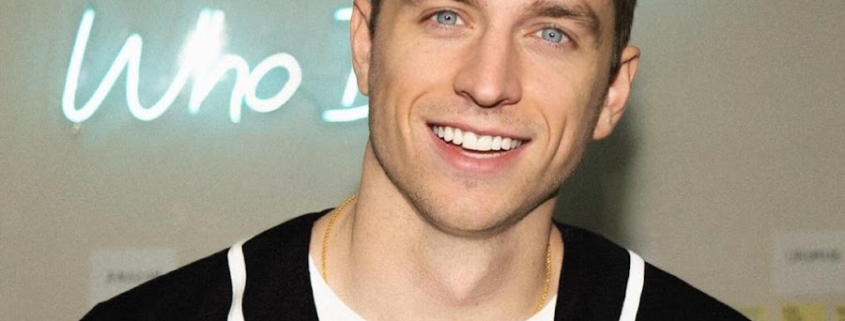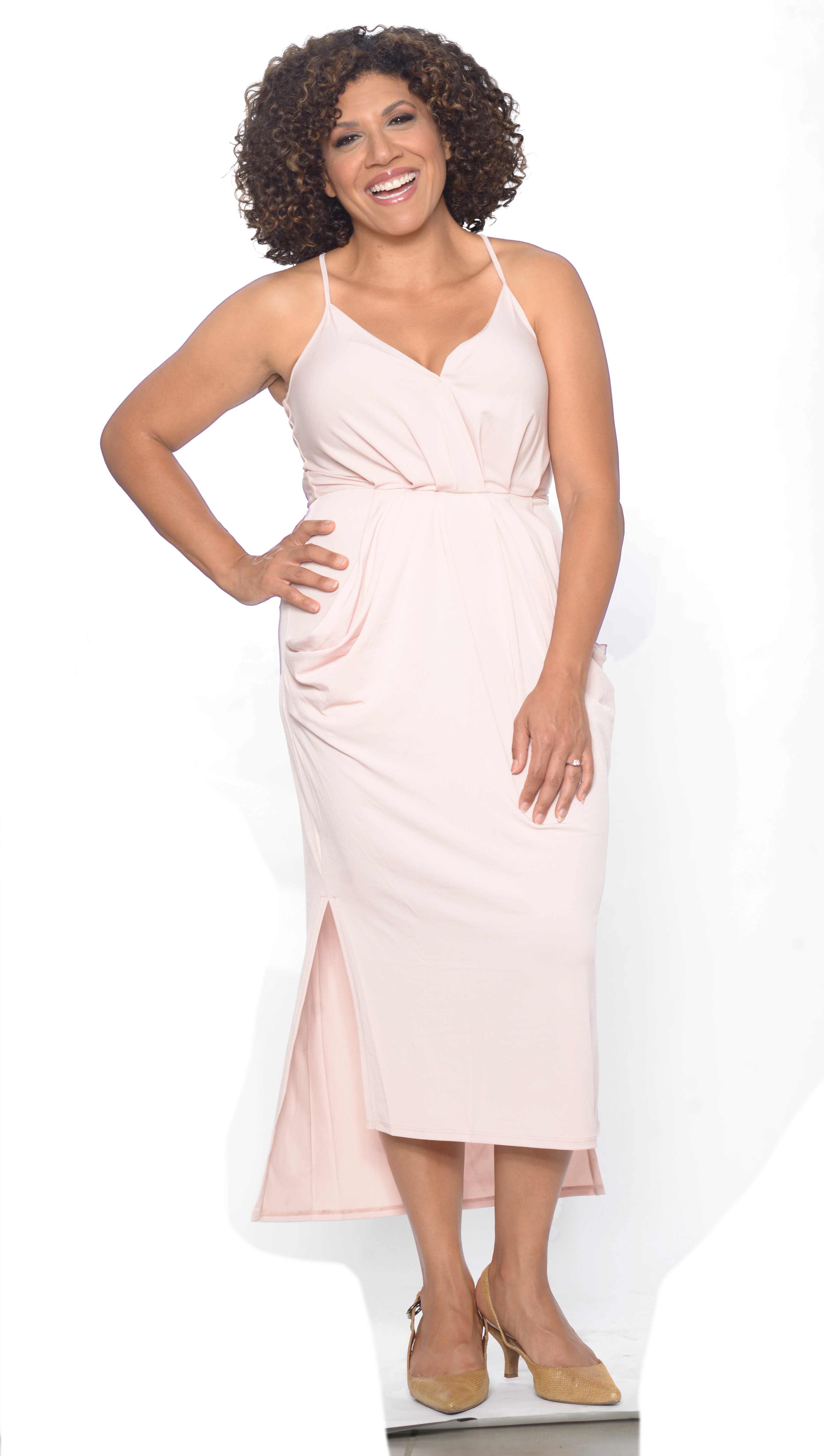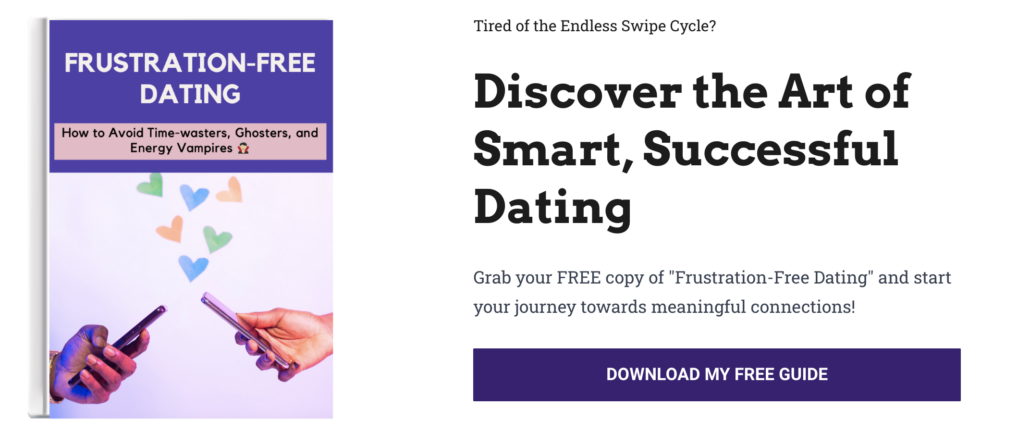New Mindset & LinkedIn Love
You’ve heard Damona say on the show before that mindset is everything when you begin your dating journey. You have to know who you are and what you’re looking for, and it helps to have mindset tools in place to support and keep you going when things get tough. And we know it gets tough.
That’s why Case Kenny, Instagram sensation (quite literally) and host of the New Mindset, Who Dis? Podcast, is joining Damona today to discuss how his methods of mindfulness will benefit you in dating and relationships.
DATING DISH (1:50)
Are you looking for love in all the wrong places?
According to the latest in Insider Magazine, people are using Tinder not to find love… but to sell insurance policies. This article tells the story of a guy who matched with a gal on Tinder, they went out for coffee. He thought that sparks were flying, but then she started pulling out all of these insurance packets and proceeded to try and sell him an insurance policy!! She was literally just using Tinder as a way to get clients. The experts in the article suggest that this is due to the “blurred nature of the online world” (although Tinder has been pretty clear that promotion or solicitation is a violation of their community guidelines).
On the flip side, while people are using Tinder to reel in customers, others have been using LinkedIn to find dates. There are a lot of people on the site who have blogged about finding their significant other through the platform, despite being a professional networking site. But putting all the community guidelines aside, this behavioral trend begs the question – why do we try to control the platforms that we’re on? Speaking to the blurred nature of the online world, once a platform is created, it kind of takes on its own identity and its own nature of possibility. The reality of all of these platforms, whether it’s Twitter or Tik Tok or LinkedIn, is that they’re actually created for connection. Just because a platform is created with a certain purpose, doesn’t mean that that is the meaning it will take on later down the road.
Damona adds, “When we look at it in the offline world, it’s actually kind of ridiculous. Like, you don’t say, “I intended to meet someone in a bar. So I can’t go to a bar unless I’m there to hook up or to date or to meet someone. We don’t do that offline. Why are we doing this online?” So given how fluid online forums will continue to be, the more we can stay open to possibility and stay present, the sky’s the limit on the connections and the conversations that you’re able to create.
Not ready to try dating on LinkedIn? Let Damona help you redesign your dating profile with the Profile Starter Kit to get you online easily and on to your dating success story. Get yours for free HERE!
CASE KENNY (6:45)
Damona is bringing us an interview with Case Kenny, Instagram sensation and host of the New Mindset, Who Dis? Podcast.
Case is also the Founder and Editor-in-Chief of PRSUIT.com – “a quirky, no BS mindfulness email that feeds your soul.”
(7:42) A love for mindfulness:
Although Case is often asked to talk about relationships and give relationship advice, he hasn’t quite gotten used to it yet. He shares how this was not by design, since he originally started his podcast as a means to share his love for mindfulness and how to take an optimistic, self-aware approach to life. “For a long time, I never touched relationships because I thought, ‘Who am I to give relationship advice? I’m a single guy in my 30s.’ But you know, more and more I talk to people and they’ve said, the area of life where we need mindfulness most is relationships. So I started to give my thoughts, not my advice. Not ‘here’s what’s right’ and ‘here’s what’s wrong’. But just my thoughts on exactly what you said, what can you take from dating experiences that aren’t necessarily great? And I started to do that, and I just realized that there was a lot of power in it.”
(9:28) Not afraid of a good cliché:
One of the things Case is most notable for are his extremely relatable and shareable Instagram posts, in which he holds up mindfulness quotes against urban or cityscape backgrounds. (An example of one of his recent quotes is “sometimes the only closure you need is deciding you are worthy of mutual effort and respect.”)
So where does Case get the inspo for his content? He states that the majority of what he posts are obvious truths, but that our life experiences can sometimes cause us to forget these truths. “I think a lot of times we confuse ourselves, we overthink. Life beats us up to the point where we no longer believe these things that at some point were fundamental to us. Namely, you don’t chase people who aren’t interested in you, you can’t force someone to love you. Y’know, you shouldn’t ever want to do these things. But I think life, you know, adds up over time, and we forget these things. So I am not afraid of a good cliche, I’m not afraid of stating the obvious, because I think it’s my mission in life to remind people of the things that we know…”
Case mentions that another part of his inspiration, which he also describes as one of his favorite pastimes, is asking older generations what they regret in life. “It’s like a weird, seemingly downer thing to do. But I’ve learned so much from observation and deep thinking, I spend all day every day thinking about these topics.” Damona adds that she often asks her clients to find a relationship role model for themselves. Because you might not have come from a family where healthy relationship dynamics were modeled for you, but that doesn’t mean you can’t gain that knowledge, insight and wisdom through the people you interact with.
(13:02) Be more you-specific:
And when you’re someone who gives relationship advice, you know that you’re going to be asked about relationship red flags. As Case details, the reason talking about red flags is so popular is because, as humans, we gravitate towards absolute truths (although life isn’t always this straightforward). Case recently did an episode on his podcast about red flags, and actually spoke about the red flags his younger self had been putting out while dating. And the biggest one for him was lack of clarity – dating without a reason to date. He adds that this is actually a hurdle that is pretty rampant in today’s dating climate as well (makes a lot of sense, since ‘situationship’ is now practically a colloquialism).
Case then speaks about the book he wrote that tackles this issue: “I wrote a book called Single Is Your Superpower, and Chapter One was to sit down and ask yourself, why are you dating? And most people were like, ‘What do you mean? Of course, you’re supposed to date, you’re not supposed to be alone. I want to start a family. I want to leave a legacy.’ Very like biological, societal things. And I think those are fine answers. But I think we need more intentional specific-to-you answers… I don’t think it’s an over standard to say I expect someone else to know why they’re dating.”
Damona asks Case to speak a little more about why he himself used to back away from partners who expressed clarity with him. “I’d say two quick things. One, that was a reflection of my lack of maturity, for sure. Like not knowing what I wanted, but continuing to date without knowing that and then being scared off by someone who knows what they want. That’s immaturity… But I think a bigger part of that is lack of awareness around conditioning, lack of awareness around things like attachment styles.” Case ends with the biggest revelation he had being that in dating, there is always going to be some amount of discomfort. And that can show up in different ways – discomfort from being single for a long time, discomfort from having a routine to bringing someone into your life, etc. A lot of people see that discomfort as a sign to back up, but everyone feels that discomfort. “I think any great, rewarding compatible relationship requires that both people challenge the discomfort and engage in the discomfort rather than seeing discomfort as a sign to back up.”
(18:14) Patterns are only patterns:
Damona brings up one of Case’s favorite bites of knowledge, which is “patterns are only patterns until they stop becoming patterns.” Case explains how he believes “the greatest things are on the other side of tremendous friction and frustration, and discomfort and lessons learned. And if we understand that, then hopefully we can empower ourselves to see the ups and downs – and the downs, and the downs – in a way that empowers us rather than pulls us back.” So instead of being a victim to your circumstances (which then may lead to patterns that you get stuck in), ask yourself how you can flip negative observations and experiences into things that empower you rather than lower your standards. Case notes that it’s very tempting to come back to negative assumptions about ourselves, and when we look for the lessons in our negative experiences, we are able to break out of our negative cycles and take our power back.
(20:18) Sitting with discomfort:
Speaking of taking our power back, Damona once again brings up the idea of discomfort and how it’s such a necessary feeling, because it is the feeling of change happening. Damona then inquires if Case has any exercises on hand for getting more comfortable with discomfort. In the context of dating, Case says “the question is, is this person capable of loving me? Like, that’s always the question… It’s like one thing to go on a couple dates and be like, this is great. But like, is this capable of turning into something real? You look at it through the lens of, is this person willing to embrace the discomfort that’s going to come? Or are they going to back up from that discomfort?” On the flip side, negotiating discomfort in dating isn’t always an issue with the other person. You may then have to ask yourself, am I willing to embrace discomfort to know what I have to do? And more immediately, you may ask yourself, am I willing to embrace the discomfort of stating my intention on day one? Am I willing to embrace the discomfort from what could be rejection, judgment, maybe a weird look? If you can ask yourself these questions and work towards being more comfortable with discomfort, then you unlock a whole new realm of possibilities.
(22:47) Fact or Feeling:
In another recent episode of his podcast, Case tackles the idea of honoring your feelings, but not trusting them. Now what does that mean, exactly? Basically, it’s recognizing and remembering that your feelings are not facts. We can acknowledge the things we tell ourselves or the negative thoughts that come up without fully putting our faith in them. “It’s the ultimate balancing act, right? Like your feelings are your greatest friend, but also can be your greatest enemy. Like, your intuition is so powerful.”
So how do we know when to trust our emotions or intuition? Case gives Damona an exercise he likes to use called Facts or Feelings. “What I think is really helpful is to establish a list of facts for yourself. Those are facts that you fundamentally believe, and you compare those to your feelings. So for instance, like you come up with a list of facts – I believe that my hard work will pay off. I believe that I am worthy of honesty and kindness, whatever it may be. Those are the facts. When you have a feeling that isn’t aligned with that, you should always listen to it. You shouldn’t ignore, you shouldn’t exist outside of your feelings. But I found it really powerful to take a look at the feeling and compare and contrast that with the fact, and then realize that facts are permanent in your life. The facts are non-negotiable. The feelings are temporary.” Remember that whatever facts you choose, these are the statements that you will never negotiate on when it comes to your worth or what you believe, or how you see the world.
(26:33) Is mindfulness a form of meditation?:
With so much information on how to be mindful in everyday life, could one say that practicing mindfulness is basically meditation? On the contrary, Case believes that meditation is a form of mindfulness. To his interpretation, Case sees being mindful as being self-aware, and in turn being self-aware is to be radically honest with oneself. “Radical Honesty is defined by the practice of asking yourself why, and answering it. So I consider mindfulness the practice of why – a three letter word, very powerful. That’s why I think meditation is a form of asking why. It’s a form of, why are my mind and my body in two different places? Why am I allowing this thought to absorb my energy? Whatever it may be.”
When you make it a habit of asking yourself “why,” Case says that you begin to experience two things – closure from the past, and clarity in the present. And when you’re operating from a place of closure (or rather, from a place of peace), the answers to all your “why” questions become infinitely clearer.
Check out Case’s podcast New Mindset, Who Dis? And follow him on Instagram @case.kenny for your daily dose of mindfulness.
DEAR DAMONA (31:58)
Submit your questions on Instagram, Twitter, or Facebook and hear our answers live on the show! Here’s what our listeners asked about this week:
- IG Message from A – I’m usually an anxious-avoidant and working on it. I’m 33 and my new mate is 36. It all started when I was visiting NYC about a month ago and I matched with him on Bumble. We went on a first date and it felt really good – like, long-term potential good. What was meant to be a hookup developed and I really felt like I wanted to see him again. So, a few weeks later I flew back to NYC. Our time together was INCREDIBLE. Now he is coming to see me (and stay with me) at the end of this month for a couple of days. I realize this intense romantic phase fades, but since we’re across the nation it feels like a special situation and we want to make the most of our time together. I told him I’d like to talk more about deeper things and text less so we can develop more closeness. Last night via video chat, we spoke about both wanting a long term partnership with the right person. Next he asked me if I wanted kids (he wants them). Having kids terrifies me because I didn’t have good examples growing up, but things shift and maybe it could happen with the right person. It got a little awkward and I felt really anxious after we wrapped (I felt like I overshared). On one hand it kind of feels quick, but on the other hand it feels amazing that we are genuinely connecting. But I know my brain is on love drugs, so I am having a hard time thinking of this objectively. I read some articles that say I should avoid oversharing and moving too quickly in the beginning because things can blow up if we skip the ‘getting to know each other’ phase. How do I identify if we are going too fast and should I attempt to slow things down? And if we are going too fast, how do I slow it down without seeming unstable or like I’m holding back out of fear, when all my heart wants is to lean in?
DAMONA’S DEALS
- Get your free Profile Starter Kit at DamonaHoffman.com
- Take control of your mental health with 10% off your first month at Betterhelp.com/datesandmates
- Download the OkCupid app for free today!












